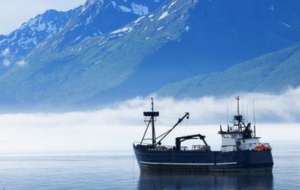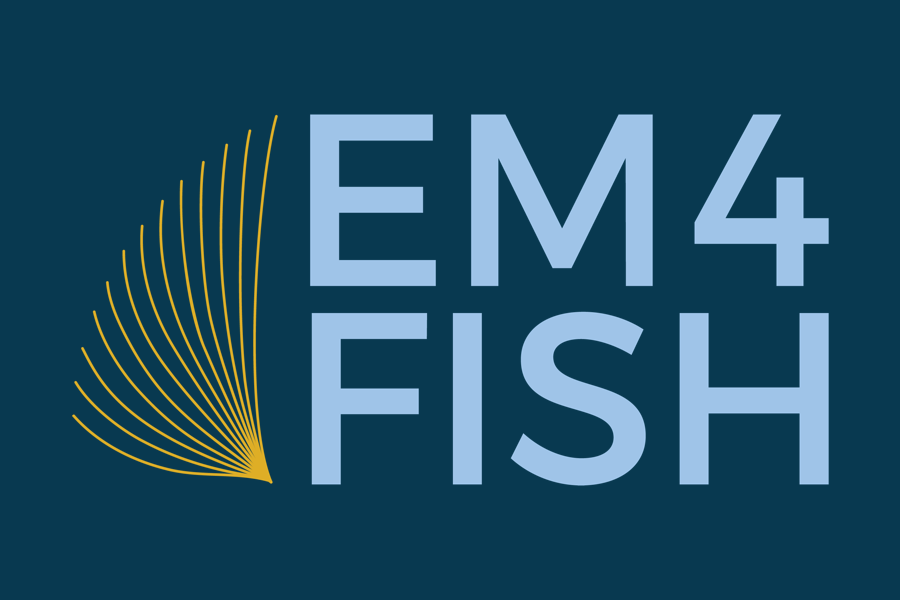WASHINGTON, D.C. (November 23, 2021) – The National Fish and Wildlife Foundation (NFWF) and National Oceanic and Atmospheric Administration (NOAA) today announced $3.7 million in grants to support the implementation of electronic technology solutions and modernization of data management systems for fisheries in U.S. waters. The grants will generate $7.7 million in non-federal matching contributions for a total conservation impact of $11.4 million.
The grants were awarded through the Electronic Monitoring and Reporting Grant Program (EMR Grant Program), a partnership between NFWF, NOAA and the Kingfisher Foundation.
The 12 funded projects announced today will continue to advance the use of flexible electronic monitoring systems in small-scale fisheries, develop new  artificial intelligence tools for data analysis, and enhance data collection in some of the nation’s largest fisheries. Projects will support sustainable management efforts in federal and state fisheries in Alaska, California, Florida, Maine, Maryland, Massachusetts, Mississippi, New Hampshire, Oregon, Rhode Island, Texas, Virginia and Washington, as well as the District of Columbia.
artificial intelligence tools for data analysis, and enhance data collection in some of the nation’s largest fisheries. Projects will support sustainable management efforts in federal and state fisheries in Alaska, California, Florida, Maine, Maryland, Massachusetts, Mississippi, New Hampshire, Oregon, Rhode Island, Texas, Virginia and Washington, as well as the District of Columbia.
“The projects announced today are important steps toward sustainably managing U.S. fisheries using timely and high-quality data,” said Jeff Trandahl, executive director and CEO of NFWF. “These grants support innovation in fisheries data collection and in data management by increasing the number of vessels using electronic technologies and by making possible the best use of the data collected, benefiting both fish and commercial fisheries.”
This year’s projects include an effort to create an artificial intelligence tool that can reduce review time and storage needs for electronic monitoring video data in fisheries around the country. In addition, the projects will support the transition toward at-scale implementation of electronic monitoring in Alaska and New England fisheries.
“Working together, NOAA and NFWF are investing in emerging technologies that can maximize opportunities for fishermen and provide robust, science-based decision-making tools for fisheries management across 13 states and the District of Columbia,” said Assistant Administrator for NOAA Fisheries Janet Coit. “These grants not only benefit our marine ecosystems, but also help drive innovative industry solutions.”
The 2021 grant slate also includes one project, funded by NFWF in collaboration with Shell Oil Company, that works to address North Atlantic right whale conservation as it relates to fishing gear interactions. This project will test the accuracy and utility of an electronic gear-location marking application in both mobile and fixed gear fisheries in New England to help refine buoyless or ropeless gear-marking technology.
“We are excited to work with NFWF and NOAA on pioneering safer fishing solutions to help protect the right whale by reducing entanglement,” said James Cotter, Shell GM US Offshore Wind. “Supporting fishermen by working side-by-side with local communities where we operate is an important part of being a good neighbor, and imperative as we continue to explore offshore wind power on our shorelines.”
The EMR Grant Program was established in 2015 to advance NOAA’s sustainable fisheries goals to partner with fishermen and other stakeholders, state agencies and fishery information networks to integrate technology into fisheries data collection and observations. To date, the program has awarded more than $25.2 million to 83 projects in U.S. fisheries and has generated a total conservation impact of $60.5 million through matching contributions. Congress appropriated $3.5 million to NOAA Fisheries for this program in 2021.
View the complete list of the 2021 grants made through the Electronic Monitoring and Reporting Grant Program here.
About the National Fish and Wildlife Foundation
Chartered by Congress in 1984, the National Fish and Wildlife Foundation (NFWF) protects and restores the nation’s fish, wildlife, plants and habitats. Working with federal, corporate and individual partners, NFWF has funded more than 5,000 organizations and generated a conservation impact of $6.8 billion. Learn more at www.nfwf.org.
About the National Oceanic and Atmospheric Administration
Climate, weather, and water affect all life on our ocean planet. NOAA’s mission is to understand and predict our changing environment, from the deep sea to outer space, and to manage and conserve America’s coastal and marine resources. See how NOAA science, services, and stewardship benefit your community: Visit noaa.gov for our latest news and features, and join us on social media.
About the Kingfisher Foundation
The Kingfisher Foundation works to implement sound fishery management rules and methods that align long term economic prosperity for fishers with good stewardship and sustainable fishing. Themes include rebuilding fish populations, implementing secure access rights, harnessing technology innovations and modern information policies for cost effective data driven monitoring, management and accountability of commercial and recreational fisheries. The foundation supports NFWF’s Electronic Monitoring and Reporting Program, which aims to develop and implement electronic technology to improve the timeliness and quality of fisheries data, expand access and availability of data, and increase knowledge of fisheries management and science.
About Shell Oil Company
Shell companies have operations in more than 70 countries and territories with businesses including oil and gas exploration and production; production and marketing of liquefied natural gas and gas to liquids; manufacturing, marketing and shipping of oil products and chemicals and renewable energy projects. Over the past 100 years, Shell has helped preserve and protect habitat and species through hundreds of conservation projects and initiatives. Collaborating with key organizations and environmental NGOs has enabled Shell to leverage its efforts to ensure the highest possible impact – including the protection of more than 13 million acres of wetlands.
###

